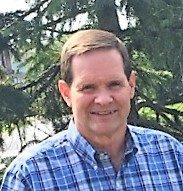Are you a glass half-full kind of person? Or half-empty?
A profound truth about life is that we don’t tend to see things as they are. We see them as we are! Our lives are conditioned by experiences and lessons that teach us something about the world. Once that gets inside of us, we use that template toward most everything we see. Hence, two people can look at the same thing and see something different.
Because of that, many of us have been conditioned to believe unbiblical things. We think there is a shortage when there is plenty. We are taught to fear strangers first and love them later. We believe it is “us” versus “them.” We are sure that heaven is earned (no matter what we sing on Sunday). We see no blessing in weakness or failure. The list goes on. However, our scripture is very clear that all of these are things we have learned, and things our discipleship is helping us unlearn. Mature faith is seeing things the way God sees them, and living out of that template.
That brings us to stewardship. How does God look at resources (time, treasure, talent)? Faith says that they aren’t even our resources, but resources God grants us for using and building a world that God imagines. Simply moving from “our” to “God’s” is a huge shift in seeing. The idea that life is “on loan” to us changes everything. There is a holy purpose that fills our lives as we realize we are being entrusted by the One who loves us as part of a larger cause.
Secondly, are we looking at these resources as half full, or half empty? In this world of guarding, grasping, hoarding, and protecting, it is easy to lose the eyes of faith. When we see fish and a few loaves are we thinking we are in trouble because the need is too big? Or are we wondering where we need to find extra baskets for the leftovers? Seeing and acting in faith releases miracles of abundance. The eyes of stewardship see more than what is in front of us. They also see the power within us.
Perhaps it is time for a vision check. Are the things we see really the way we see them? Could it be that we decide what it is before we look, not after? And are we walking with God closely enough that we trust those divine eyes more than our own? These are questions that are asked and answered by all who have the eyes of stewardship.
 If you want more ideas for stewardship and giving, whether pastor or lay person, contact us at your United Methodist Foundation here or by calling us toll free at 877-391-8811.
If you want more ideas for stewardship and giving, whether pastor or lay person, contact us at your United Methodist Foundation here or by calling us toll free at 877-391-8811.
For more good stuff Follow and Like us on Facebook.
Glenn Howell
Director of Development
United Methodist Foundation of Indiana

Recent Comments